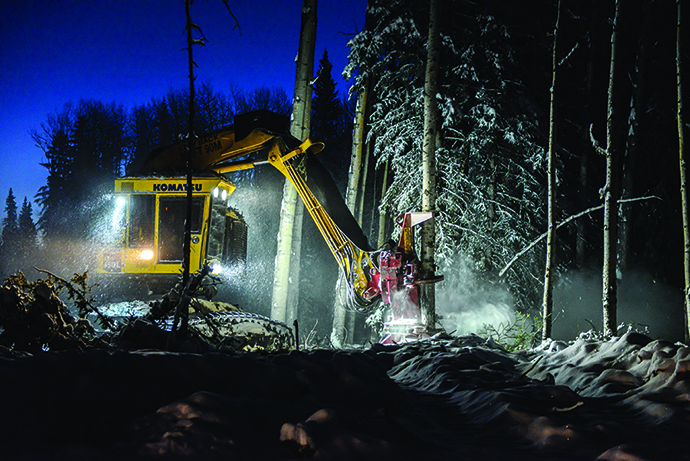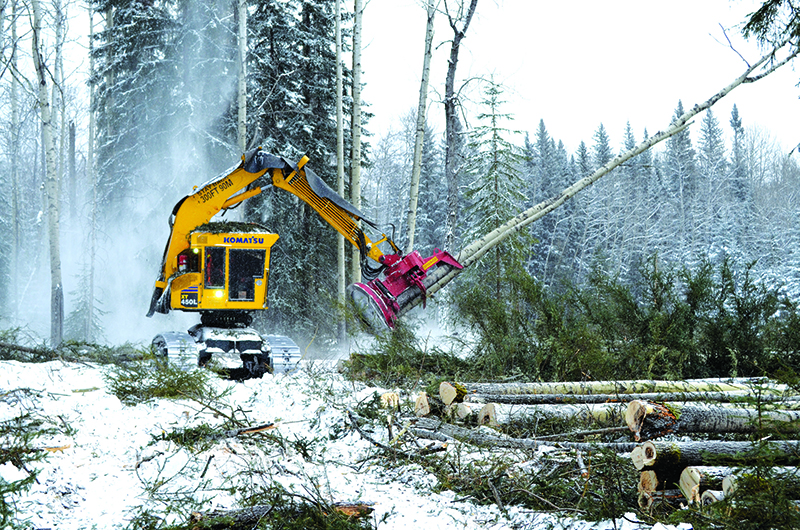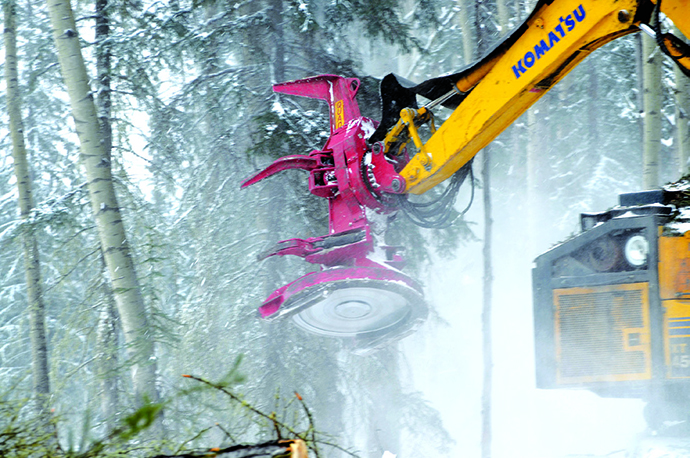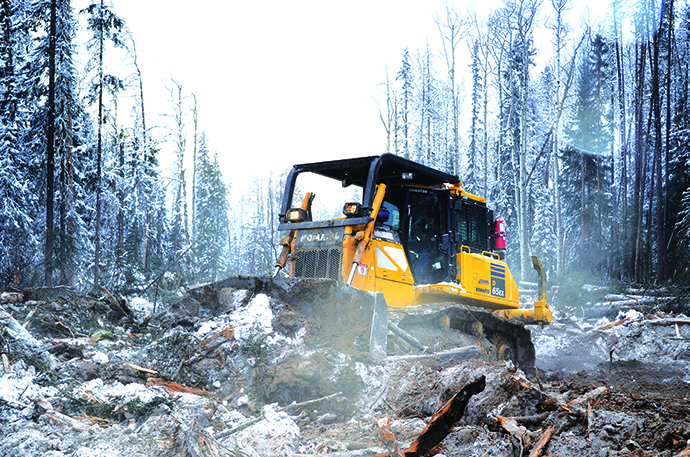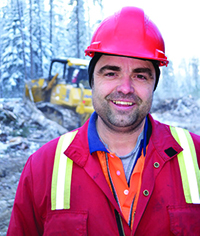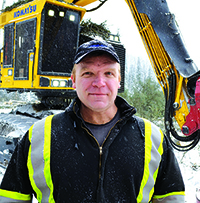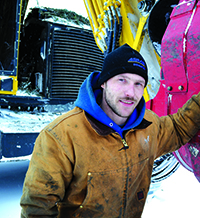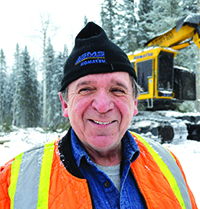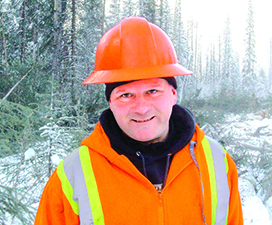Most industries have undergone some serious changes over the past three decades, largely due to technological advancements. Few, however, have undergone as radical a transformation as the logging industry.
For example, Hi-Sky Enterprises, a northeastern British Columbia logging company, has seen considerable changes since started by Lorne Waldie in 1980. His son Shayne joined the company in 1991 and is now Operations Manager.
“When I started, we used all hand-fallers, line-skinners and hand-buckers – everything was power-saw work,” Shayne Waldie recalled. “Today, we have no power saws in the bush, in fact, it’s all mechanical and little-to-no manual labour. At Hi-Sky, we’ve adapted well to the changes, and we’re continuing to look at new processes to further improve our productivity and profitability.”
There’s no question as to whether mechanization has boosted Hi-Sky’s productivity. Waldie says in the power-saw days, the company logged maybe 80,000 to 100,000 metres per year. Now, it logs 400,000 to 600,000 metres per year.
“Of course, producing more and producing more profitably aren’t necessarily the same thing. For us to get a good price, the mills have to be making money, and due to a slow world economy, they’ve been down for a number of years. I think we’re all hopeful that the cycle
is about to turn back up, and we’ll all reap the benefits of the upturn.”
For example, Hi-Sky Enterprises, a northeastern British Columbia logging company, has seen considerable changes since started by Lorne Waldie in 1980. His son Shayne joined the company in 1991 and is now Operations Manager.
“When I started, we used all hand-fallers, line-skinners and hand-buckers – everything was power-saw work,” Shayne Waldie recalled. “Today, we have no power saws in the bush, in fact, it’s all mechanical and little-to-no manual labour. At Hi-Sky, we’ve adapted well to the changes, and we’re continuing to look at new processes to further improve our productivity and profitability.”
There’s no question as to whether mechanization has boosted Hi-Sky’s productivity. Waldie says in the power-saw days, the company logged maybe 80,000 to 100,000 metres per year. Now, it logs 400,000 to 600,000 metres per year.
“Of course, producing more and producing more profitably aren’t necessarily the same thing. For us to get a good price, the mills have to be making money, and due to a slow world economy, they’ve been down for a number of years. I think we’re all hopeful that the cycle
is about to turn back up, and we’ll all reap the benefits of the upturn.”











































